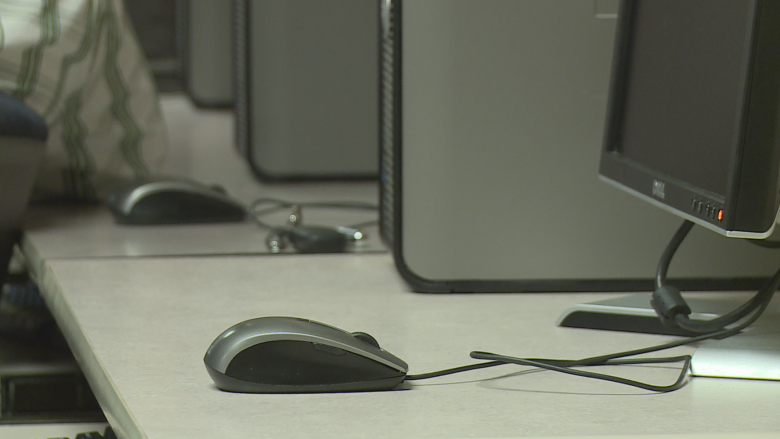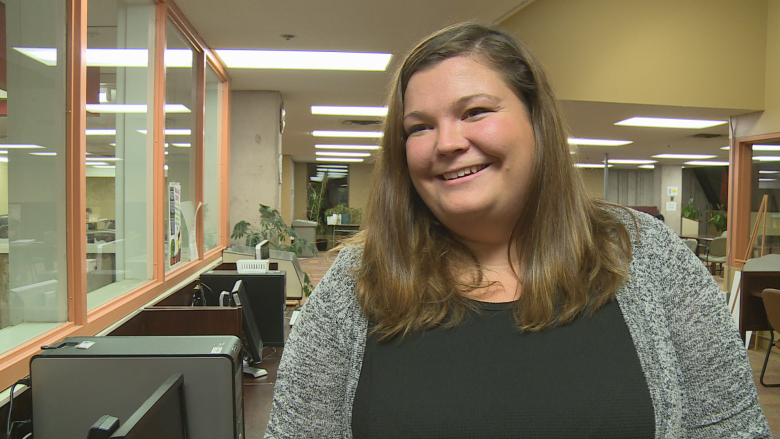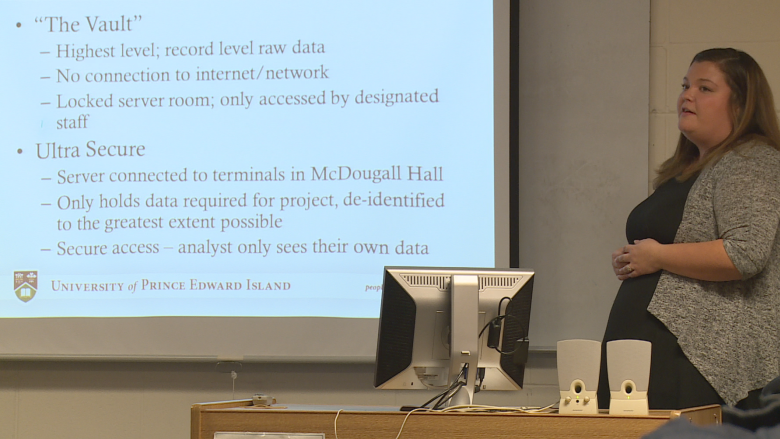'We all stand to benefit': UPEI researchers developing resource for health data
The Centre for Health and Community Research at UPEI is helping bridge the gap between researchers and health data on the Island.
As part of the open data movement that pushes for accessibility, the Secure Island Data Repository, or SIDR, is being created in hopes of cutting through wait times and complications to get data for health research.
Mary-Ann MacSwain is a data analyst with the Centre for Health and Community Research. She is helping develop the resource.
Getting data is possible, but slow
MacSwain said researchers can request health data from the government, but it's complicated.
"Right now it is possible for researchers to request data from Health PEI but it can be a very challenging and lengthy process to navigate," she said.
"What we're trying to do is to develop a data repository where people can come in, request data and talk to a staff member who knows what's available and the best ways to get at that data, and to prepare the data for them so they can use it in their research."
MacSwain explained that health data is tricky because there are many identifying factors, and it's not in Islanders' best interest to have that data accessible by the public.
"In a small province like P.E.I., people could be easily identified if that information was just out. For example, a date of birth that might be important in identifying someone's age, might tip you off to who that person is."
MacSwain said the Secure Island Data Repository is being created in partnership with stakeholders from the university, Health PEI and the Department of Health and Wellness.
Emphasis on security
MacSwain said the information would be on a secure server not connected to the internet or a network.
Only designated staff would have access, and the data would be scrubbed down as much as possible so there would be enough to analyze but not identify people.
Researchers would still have to get ethics approval and go through proper procedure.
"We'll actually house the data at UPEI, so in a sense we're the middleman. There will still be approvals required from the department to release any data, but we just help facilitate that process."
Data will help find trends
It is not ready for outside access yet, but MacSwain recently completed a study replicating one done in Nova Scotia about high cost health care users.
"What they discovered, and similarly what we discovered was that a very small percentage of the population, in our case just five per cent of the population, was using almost three quarters of health care expenditures," she said.
With this data, MacSwain said there is work that can be done to find out what's causing this and figure out possible solutions.
There is no set time for the repository to be operational because there is still work to do with the government to make sure everything is done correctly.
'Two heads are better than one'
MacSwain said it is realistic it could roll out within a year.
"I think we all stand to benefit from what the data tells us and using that to drive that where we go in terms of change with our health care system," she said.
"It's that old saying, two heads are better than one. The more people we can get that have the skills to really look at that data, identify trends and some things that are happening, I think the more solutions that can be offered."
MacSwain said if things go well with the health data, they could expand to other government departments as well.
"I think that by opening it up as much as we can, while still respecting privacy, it really will open up the doors to potentially a much better system."
MacSwain presented the project during an open data event hosted on Thursday night by UPEI's Robertson Library and PEI's Open Data Book Club. The event was the final event in International Open Access Week.
- MORE P.E.I. NEWS | Poppy campaign kicks off on P.E.I.
- MORE P.E.I. NEWS | Q&A: P.E.I.'s Diane Griffin on her Senate recommendation





